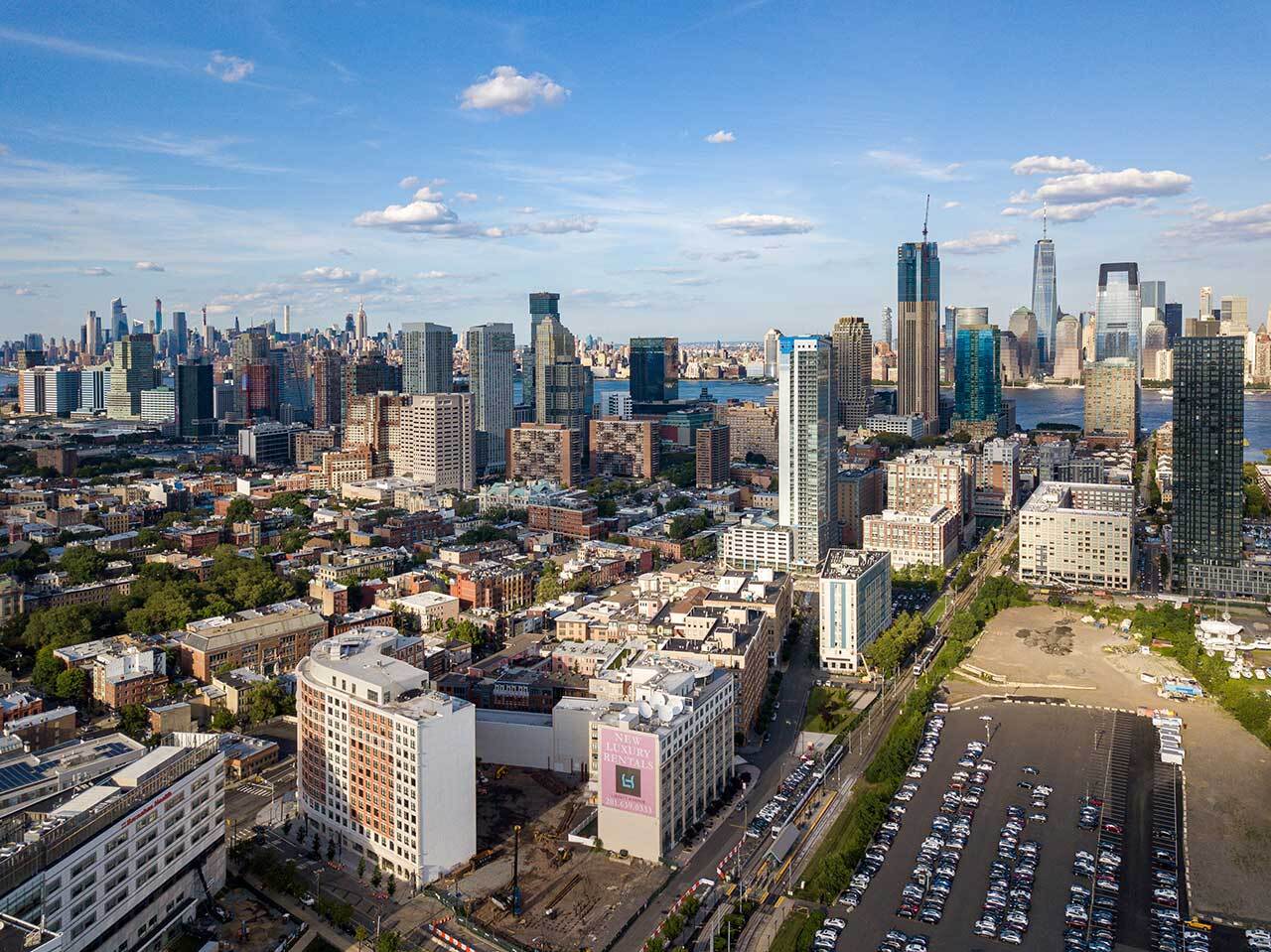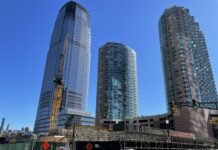
After over a year of discussion about how to best create new affordable housing in Jersey City, the council has moved forward with legislation that will require all new developments set aside affordable units, albeit with some carve-outs.
Talks about a citywide inclusionary housing ordinance heated up last summer when dueling ordinances were introduced to address an area where Jersey City has fallen behind nearby municipalities. Neighboring Hoboken has a 10 percent affordable requirement on all new developments over 10 units and Newark passed an ordinance in 2017 requiring all developments over 30 units to include 20 percent affordable housing.
On October 7, Jersey City’s council voted 7-2 to introduce their own inclusionary zoning ordinance that will require all new construction in the city include 20 percent affordable housing. The legislation applies to all developments that are requesting five or more additional units or an additional 5,000 square feet of residential floor area through a redevelopment plan amendment or a variance.
The ordinance dictates the affordable units be set aside for households with combined income brackets at 30 percent, 50 percent, and 80 percent of the annual median income as defined by Uniform Housing Affordability Controls.
The ordinance as written contains several provisions that developers could use to avoid the 20 percent affordable housing requirement. It includes a buyout stipulation that would allow developers to forgo the affordable mandate by contributing to the city’s affordable trust fund in an amount between $25,000 and $100,000 per unit, depending on the “tier” where the project is located.
The legislation also allows the city to approve a reduction in the mandatory on-site affordable housing requirement relative to the value of community benefits that are included in a development. Listed benefits in the ordinance include public schools, public recreational facilities, government offices, fire stations, police stations, public parking garages, public transportation systems or facilities, roads, and water infrastructure.
There is additionally a stipulation in the ordinance that allows the City Council to waive the affordable housing requirement. That provision does not list any specific reason as to why the council may do so.
Before the vote, Councilman Rolando Lavarro introduced several amendments to the ordinance that failed by a 2-4 vote with three abstentions. The most notable changes included modifying the community benefits portion to permit developer infrastructure givebacks but eliminate the other allowances. Lavarro also wished to eliminate the council’s ability to waive the affordable requirements at their discretion.
City Council President Joyce Watterman stated during the meeting that the ordinance was “a start, and we can build from there.” But Ward E Councilman James Solomon voted no on the legislation, stating that it “provides too much flexibility” for developers.
Lavarro, who also did not support advancing the ordinance, claimed that there were “gaping loopholes” in the law and suggested that the council override provision was catering to a potential legal settlement in the works for the Sixth Street Embankment. He stated that he will individually re-introduce his proposed modifications to the legislation as separate amendments during the council’s October 21 meeting, during which the ordinance could pass on second reading and become law.
Jersey City has seen a building boom in recent years but has not created affordable housing units in step with the growth. Major projects like the 781-unit 99 Hudson, the 1,000-unit Emerson Lofts, or the 950-unit Avalon Tower don’t include any affordable units due to the lack of inclusionary zoning and many of the city’s 100+ redevelopment plans lack affordable housing requirements.
If the council approves some version of the new ordinance later this year, it will take effect on January 1.


